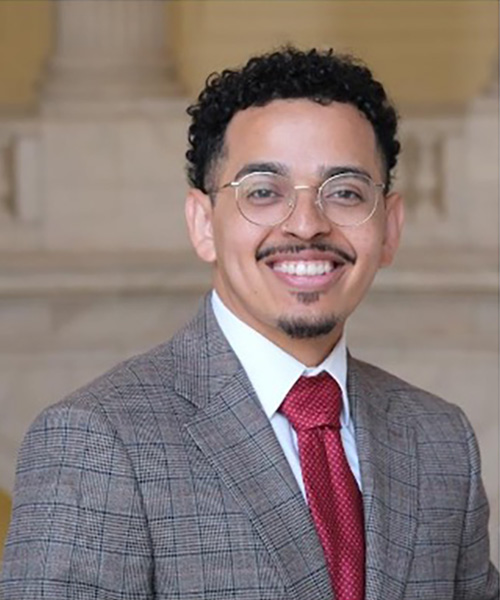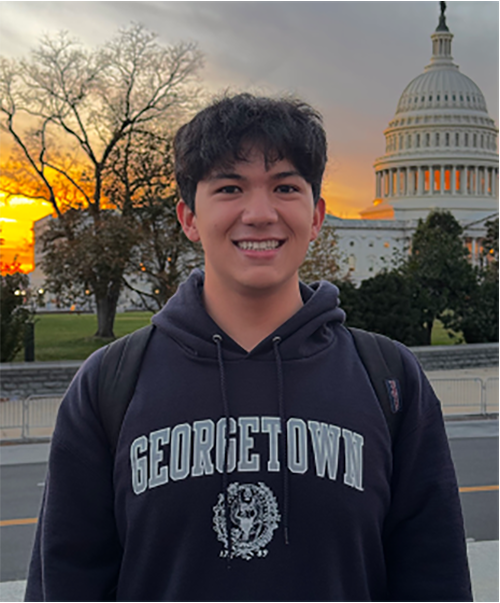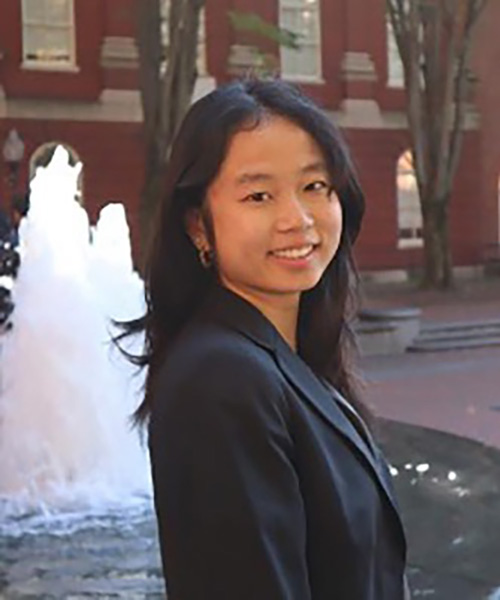
The People Beyond the Talking Points
Bennie Chang | 2025年5月31日
响应: Georgetown Students Reflect on Student Dialogue in Beijing and Hong Kong
Raghav Akula
请注意:中英文网站上发表的教日志均为英文。
From the moment we arrived in China for the U.S.-China Student Dialogue, we were welcomed by remarkable hospitality from Tsinghua University students. One student waited for me at the airport for hours and another lent me his personal bike so I could catch a bus. This warmth opened doors to learning experiences that no Georgetown classroom could have provided. From the National Development and Reform Commission in Beijing to the Goldman Sachs office in Hong Kong, I found myself taking more notes during these site visits than in many of my courses back home. I was also proud of my linguistic progress: I arrived in China knowing one word in Mandarin, and I left knowing two—a 100% improvement.
The greatest intellectual challenge of the trip, though, came with my group project. My group consisted of two students from Georgetown and four from Tsinghua. Together, the six of us were tasked with distilling the challenges, opportunities, and underlying interests and perspectives of the United States and China in business and trade issues. Upon meeting our Chinese counterparts, a small issue emerged: None of us had any background in either business or trade. We decided to split up initially, with each side endeavoring to grasp how its country approaches trade issues.
On the American side, neither of us had our laptops, so using just my knowledge from New York Times headlines and a single conversation with a student on the bus ride to the Great Wall about China’s real estate crisis, I embarked on an intellectual journey with my fellow Georgetown student to understand the logic—or lack thereof—of the Trump administration’s trade goals.
By the end of the project, we had mixed feelings about the results. On the one hand, both sides agreed that 100+% tariffs would at best be a Pyrrhic victory for either country. However, with national security concerns dominating economics, and with both sides thoroughly convinced that the other has forsaken the sanctity of free trade, the logical path forward entails the U.S. and Chinese economies growing less reliant on each other while strengthening relationships with other trading partners to alleviate each other’s concerns without hilariously high tariffs. Although this ostensibly seemed palatable, the current economic coupling between the United States and China acts as a measure of deterrence because it raises the cost of military conflict. The prospect of eroding that deterrence was a chilling one.
Overall, our project helped reveal something deeper than just trade dynamics: It highlighted a fundamental tension between competition and cooperation that extends to humanity’s greatest challenges. Portents of the existential risks of climate change, artificial intelligence, or weapons of mass destruction are thoughts that have kept me up at night, but truly, the most terrifying aspects of them are that great powers are more willing to compete over them than to collaborate to ensure our entire species’ safety and well-being. The blame for failing to address these threats, take advantage of opportunities, and disseminate beneficial technologies to the rest of the world would fall on us, and engaging with students from China—friends from China—has emboldened my resolve not to let either of our countries live with that legacy.
Raghav Akula (SFS’ 27) is a student at Georgetown University majoring in Science, Technology, and International Affairs with a certificate in Diplomatic Studies.

Bennie Chang | 2025年5月31日

Daniel Castro Bonilla | 2025年5月31日

Isabella Stratta | 2025年5月31日

Maggie Yang | 2025年5月31日

Patrick Coggin | 2025年5月31日

Tiffany Cowan | 2025年5月31日

Zifei Zhao | 2025年5月31日

Drew Zacharias | 2025年5月31日

Luke Hughes | 2025年5月31日